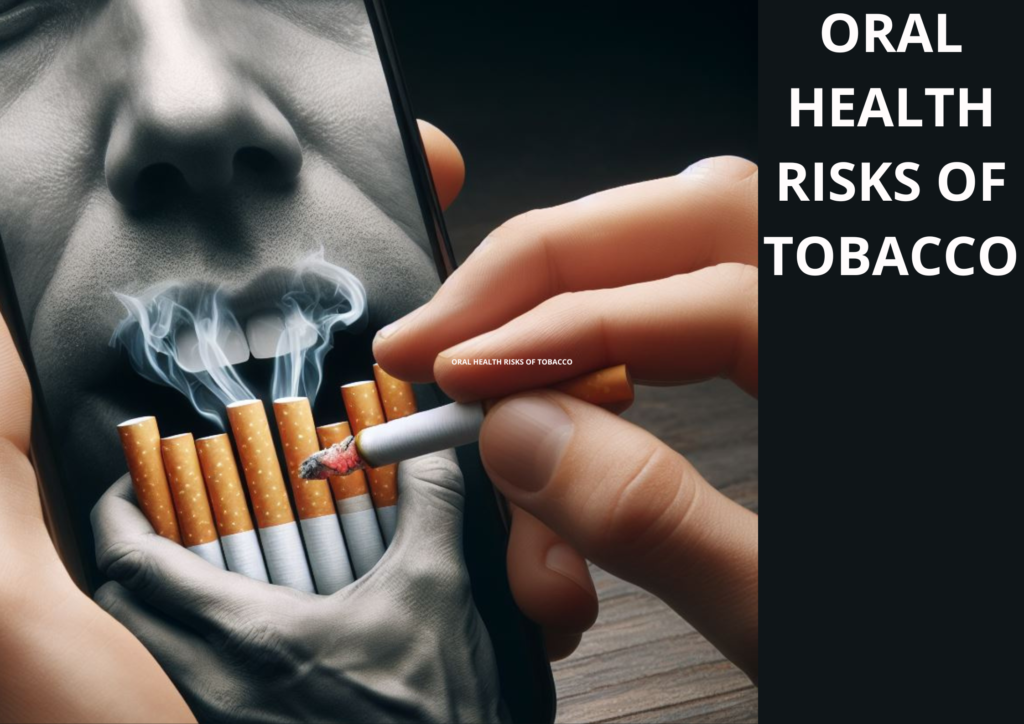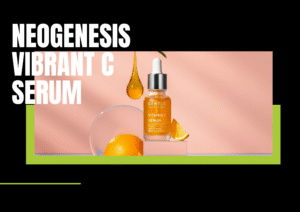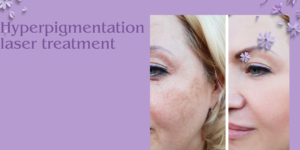
 For many, the health risks of tobacco use are well-known. From lung cancer to heart disease, the dangers are significant and widely publicized. But what you might not realize is the devastating impact tobacco products can have on your oral health. From stained teeth to a heightened risk of cancer, smoking and chewing tobacco wreak havoc on your smile.
For many, the health risks of tobacco use are well-known. From lung cancer to heart disease, the dangers are significant and widely publicized. But what you might not realize is the devastating impact tobacco products can have on your oral health. From stained teeth to a heightened risk of cancer, smoking and chewing tobacco wreak havoc on your smile.
This article dives deep into the connection between tobacco use and oral health problems. We’ll explore how tobacco affects your mouth, the specific issues it can cause, and what you can do to protect your smile if you currently use tobacco products.
How Does Tobacco Harm Your Oral Health?
Tobacco products, including cigarettes, cigars, chewing tobacco, and snuff, contain a multitude of harmful chemicals. These chemicals irritate and damage the delicate tissues in your mouth, leading to a variety of problems. Here’s a breakdown of how tobacco disrupts your oral health:
- Reduced Saliva Flow:Saliva is nature’s defense system for your mouth. It washes away food particles, neutralizes acids produced by bacteria, and helps prevent infections. Tobacco use significantly reduces saliva production, leaving your mouth dry and vulnerable to bacteria buildup.
- Inflammation:The chemicals in tobacco products irritate the gums, causing inflammation. This inflammation is the first stage of gum disease, which can lead to serious problems if left untreated.
- Weakened Immune System:Tobacco weakens your body’s immune system, making it harder to fight off infections in your mouth. This can worsen existing gum disease and make you more susceptible to oral infections.
- Precancerous Lesions:Long-term tobacco use can lead to the development of white patches in your mouth called leukoplakia. While not cancerous itself, leukoplakia can increase your risk of developing oral cancer.
Common Oral Health Problems Caused by Tobacco Use
Now that we understand how tobacco harms your mouth let’s look at the specific oral health problems it can cause:
- Gum Disease:This is the most common oral health problem associated with tobacco use. The reduced saliva flow and weakened immune system caused by tobacco create a breeding ground for bacteria, leading to gum inflammation (gingivitis) and potentially progressing to gum recession and bone loss (periodontitis).
- Tooth Decay:The dry mouth caused by tobacco makes your teeth more susceptible to tooth decay. This is because saliva helps wash away food particles and neutralize acids produced by bacteria. Without adequate saliva flow, these acids can erode tooth enamel, leading to cavities.
- Oral Cancer:Tobacco use is a major risk factor for oral cancer, which can affect the lips, tongue, cheeks, gums, and throat. Early detection is crucial for successful treatment, so regular dental checkups are essential for tobacco users.
- Stained Teeth:Tar and nicotine in tobacco products stain teeth, leading to yellowing, browning, and discoloration. This can significantly impact your smile’s aesthetics.
- Bad Breath (Halitosis):A dry mouth caused by tobacco use can contribute to bad breath, as bacteria thrive in a dry environment and produce foul-smelling odours.
- Delayed Healing:Tobacco use can impair your body’s ability to heal after dental procedures like tooth extractions or gum surgery. This can increase the risk of infection and slow down recovery time.
Protecting Your Smile: Tips for Tobacco Users
If you currently use tobacco products, it’s never too late to take steps to protect your oral health:
- Schedule Regular Dental Checkups:Regular dental checkups are crucial for early detection and treatment of oral health problems caused by tobacco use. Your dentist can monitor your oral health, clean your teeth to remove plaque and tartar, and provide guidance on maintaining a healthy mouth.
- Practice Excellent Oral Hygiene:Brushing your teeth twice a day with fluoride toothpaste and flossing daily are essential for removing plaque and bacteria buildup. Consider using a tongue scraper to remove bacteria from your tongue, which can also contribute to bad breath.
- Maintain Hydration:Drinking plenty of water throughout the day can help combat dry mouth caused by tobacco use. Avoid sugary drinks, as they can contribute to tooth decay.
- Consider Smoking Cessation:The best way to protect your oral health and overall well-being is to quit tobacco use altogether. Talk to your doctor about quit-smoking programs and the resources available to help you succeed.
Seeking Help: Quitting Tobacco
Quitting tobacco can be challenging, but it’s the single most important step you can take to improve your oral health and overall health. Here are some resources that can help:
- National Cancer Institute:https://www.cancer.gov/about-cancer/causes-prevention/risk/tobacco/quit-smoking-hp-pdq
Frequently Asked Questions (FAQs) on Tobacco Use and Oral Health
Q: I don’t smoke cigarettes, but I use smokeless tobacco. Does it have the same oral health risks?
A: Unfortunately, yes. Smokeless tobacco products like chewing tobacco and snuff contain many of the same harmful chemicals found in cigarettes. These chemicals can irritate the gums, increase your risk of gum disease and oral cancer, and stain your teeth.
Q: I’m worried about the appearance of my teeth due to tobacco use. Are there any whitening options?
A: While there are over-the-counter whitening products available, it’s important to consult your dentist before using them. Tobacco use can weaken tooth enamel, and some whitening products can be too harsh and damage your teeth further. Your dentist can recommend safe and effective whitening options for your specific situation.
Q: I recently quit smoking. Will my oral health improve?
A: Absolutely! Quitting tobacco is one of the best things you can do for your oral health. Within weeks of quitting, you’ll likely notice an improvement in your sense of taste and smell. Your gums will also start to heal, reducing inflammation and bleeding. While it may take some time for the full effects to be realized, your risk of oral health problems like gum disease and oral cancer will gradually decrease over time.
Q: I’m concerned about the health of my mouth after using tobacco for many years. What should I do?
A: Schedule a dental checkup as soon as possible. Your dentist can assess your oral health, identify any existing problems, and recommend the best course of treatment. Early detection and treatment are crucial for managing oral health issues caused by tobacco use.
Q: Are there any alternative tobacco products that are safer for my oral health?
A: There is no safe form of tobacco use. All tobacco products contain harmful chemicals that can damage your oral and overall health.
Conclusion
Tobacco use has a profound impact on your oral health, leading to a variety of problems, from gum disease and tooth decay to bad breath and oral cancer. The good news is that you can take steps to protect your smile, regardless of whether you’re currently using tobacco or have used it in the past.
By practicing good oral hygiene, staying hydrated, scheduling regular dental checkups, and, most importantly, quitting tobacco use, you can significantly improve your oral health and prevent future problems. Remember, a healthy smile is a beautiful smile, and it’s worth protecting!
Table of Contents
SEARCH HERE
CATEGORIES
RECENT POSTS



Advanced Mitochondrial Formula 2025: Can It Truly Recharge Your Energy Levels?

The Truth About Aquaponics 4 You (2025): Does It Actually Work?




Hepato Burn Supplement Review: What You Need to Know Before Buying



“The Ultimate Guide to Papillex: Natural Immune Support for HPV Relief”



Slim Down Naturally: The Truth About Plant-Based Fat Burner That Actually Work

TedsWoodworking Review 2025: Is It Worth It for Your DIY Projects?




“Immunotherapy vs. Chemotherapy: A New Era in Cancer Treatment”





“The Ultimate Guide to Hyperpigmentation Laser Treatment in 2025”


Is UV 7 Good for Tanning? What You Need to Know Before You Glow


Planning a Trip from New Windsor to Grand Canyon? Here’s What to Know

